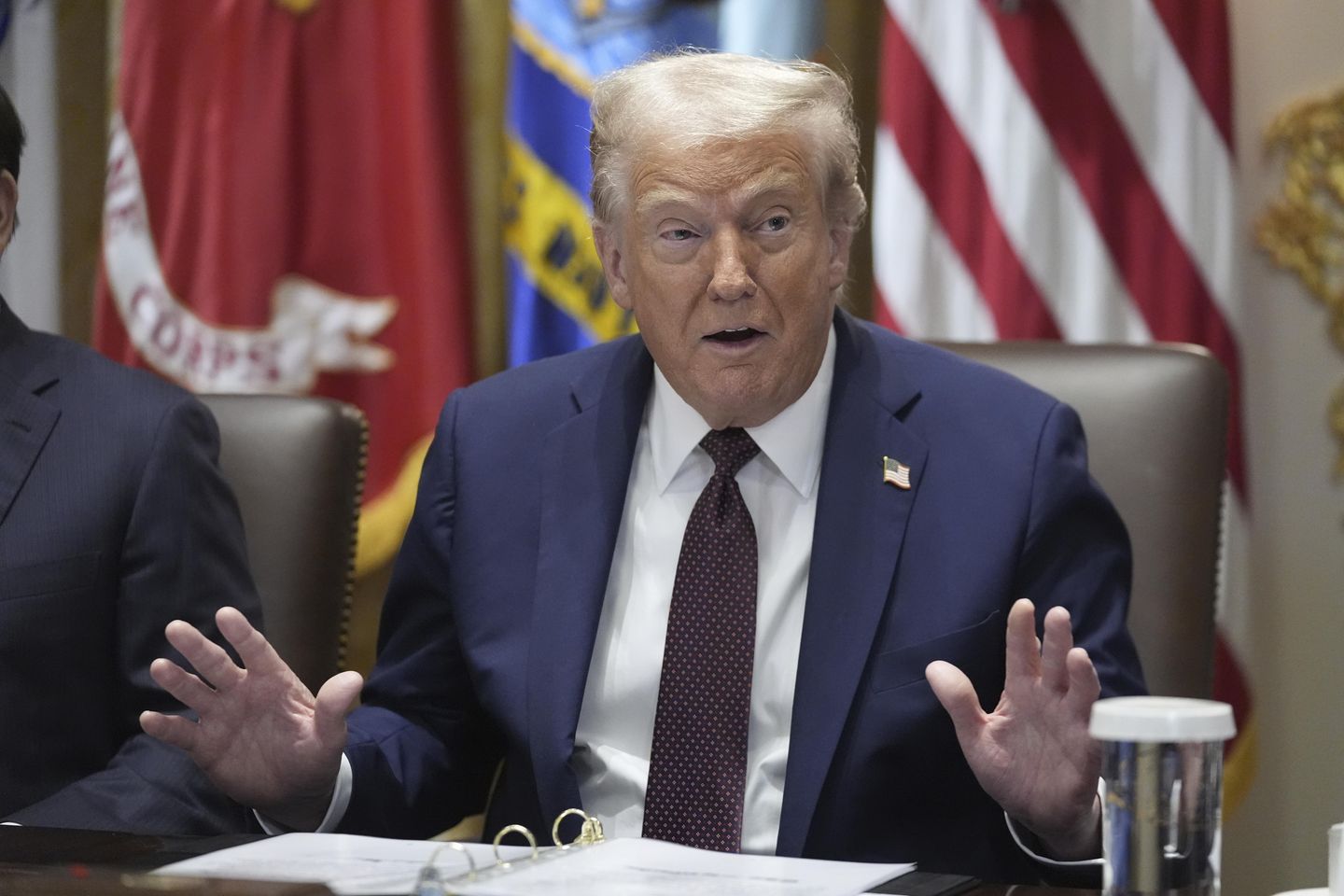
A federal appeals court ruled many of President Trump’s tariffs are illegal, dealing a potentially crippling blow to his trade agenda.
The U.S. Court of Appeals for the Federal Circuit, in a 7-4 ruling, said Mr. Trump overstepped his authority when he invoked the International Emergency Economic Powers Act, or IEEPA, to set nation-by-nation tariffs on trading partners across the globe.
However, the court paused the effect of its ruling until Oct. 14, giving Mr. Trump time to appeal to the Supreme Court.
The ruling stemmed from a lawsuit that small, import-reliant businesses filed against Mr. Trump over his “Liberation Day” tariffs on dozens of nations. They said he usurped powers that typically rest with Congress by claiming a national emergency and the right to impose levies on any nation.
“It seems unlikely that Congress intended, in enacting IEEPA, to depart from its past practice and grant the President unlimited authority to impose tariffs. The statute neither mentions tariffs — or any of its synonyms — nor has procedural safeguards that contain clear limits on the President’s power to impose tariffs,” the court said in the ruling.
The decision could upend months of work by Mr. Trump to reset global trade relations.
The White House recently finalized tariffs from 15% to 41% on dozens of countries, raising levies to their highest levels in more than a century.
Mr. Trump solidified the 10% blanket tariff on all imports and is implementing the 15% rate he negotiated with the European Union, Japan and South Korea.
The administration had warned that an adverse ruling would undercut the president and ongoing negotiations, though the court ruled Mr. Trump overstepped.
The White House on Friday said it would prevail on appeal.
“President Trump lawfully exercised the tariff powers granted to him by Congress to defend our national and economic security from foreign threats,” White House spokesman Kush Desai said. “The president’s tariffs remain in effect, and we look forward to ultimate victory on this matter.”
Mr. Trump said the ruling, if allowed to stand, would “destroy” America.
“It would be a total disaster for the Country. It would make us financially weak, and we have to be strong,” he wrote on Truth Social. “The U.S.A. will no longer tolerate enormous Trade Deficits and unfair Tariffs and Non Tariff Trade Barriers imposed by other Countries, friend or foe, that undermine our Manufacturers, Farmers, and everyone else.”
Mr. Trump emphasized that his tariffs remain in effect, pending appeal.
The ruling does not eliminate Mr. Trump’s ability to tariff nations entirely. He could use other statutes to authorize them. He could also get the GOP-run Congress to bless them through legislation, but that would likely require Democratic support to get the necessary 60 votes in the Senate.
The decision also does not impact sector-specific tariffs on things like steel, cars and aluminum, which were issued through a mechanism designed to protect national security.
Rather, the ruling affects nation-based tariffs that were imposed on individual countries, including major trading partners such as China, Mexico and Canada.
Outside groups hailed the ruling as a vital check on presidential power.
“The court of appeals rightly affirmed that IEEPA does not give the president unilateral authority to rewrite the country’s tariff regime. Any other decision would have raised insurmountable constitutional problems,” said Oliver Dunford, a lawyer at the Pacific Legal Foundation, a public interest law firm that backed the suit.











